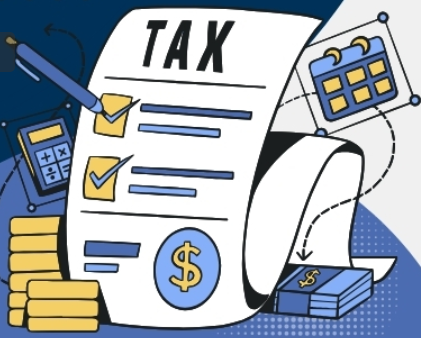
Understanding the true tax implications of workforce choices is essential for businesses aiming to optimize their financial health. The decision to classify workers as employees or independent contractors carries significant tax consequences, often overlooked by many employers. These choices influence payroll withholding, FICA obligations, and treatment on tax forms such as 1099s, ultimately affecting annual tax liabilities and compliance burdens. This blog explores the subtle yet impactful differences between employee benefits and contractor arrangements, highlighting how a strategic approach informed by a CPA can lead to substantial savings and smoother compliance.
Payroll Withholding and Its Impact on Tax Liabilities
One of the most apparent distinctions between employees and contractors concerns payroll withholdings. Employees benefit from automatic deductions for federal income tax, state taxes, and FICA contributions, managed by the employer. This process simplifies tax planning, ensures timely payments, and reduces the risk of penalties for late or incomplete filings. Failing to withhold the correct taxes can result in costly penalties, back tax liabilities, and even legal issues. Engaging a Tax advisor or tax planning services can help ensure proper classification and adherence to IRS guidelines, reducing the risk of misclassification penalties that can be financially draining.
FICA Obligations and Employee Benefits
FICA taxes, comprising Social Security and Medicare contributions, are shared between employers and employees. When a worker is classified as an employee, the employer must match these contributions, increasing the overall payroll costs. However, misclassifying workers to avoid FICA can lead to severe legal repercussions, including back taxes and penalties. A certified public accountant can assist in evaluating worker classification to ensure compliance while maximizing tax efficiency, especially when considering the broader implications for business tax services.
1099 Treatment and Compliance Considerations
The treatment of independent contractors via 1099 forms simplifies some aspects of payroll management but introduces its own compliance challenges. Businesses must ensure accurate classification to avoid repercussions such as IRS audits or penalties for misclassification. Proper documentation and adherence to IRS guidelines are crucial, and a tax advisor in Bay Area can offer valuable guidance on maintaining compliance.
While contractors provide flexibility and reduce certain costs, the tax implications of their 1099 treatment require diligent record-keeping and understanding of applicable laws. For businesses, engaging with tax planning services ensures that contractor arrangements are properly structured, reducing potential liabilities and streamlining Bay Area bookkeeping and accounting processes.
Workforce Structure and Long-Term Tax Strategies
Choosing between employees and contractors is not solely about immediate cost savings but also involves long-term tax planning. Employees offer stability and predictable tax liabilities, which can be advantageous for tax planning in complex scenarios such as international tax considerations or mortgage-related documentation. Strategic workforce structuring, guided by a CPA, can help optimize tax benefits while maintaining compliance. Whether the focus is on personal or business tax filing in Bay Area, understanding the hidden costs associated with workforce classification can significantly influence overall tax efficiency.
Maximize Tax Savings with Expert Guidance
Understanding the hidden tax costs of employee benefits versus contractors is vital for effective tax planning. Proper classification impacts payroll, FICA obligations, and 1099 treatment, all influencing annual liabilities and compliance. For tailored advice on tax planning and business tax services, consulting a Tax advisor ensures strategic decisions that align with business goals.
Seeking expert tax and accounting services is an investment in long-term financial health. For more insights on optimizing workforce structure and tax strategies, I invite you to explore Nidhi Jain CPA’s blog, filled with valuable tips for enhancing tax efficiency and compliance.




